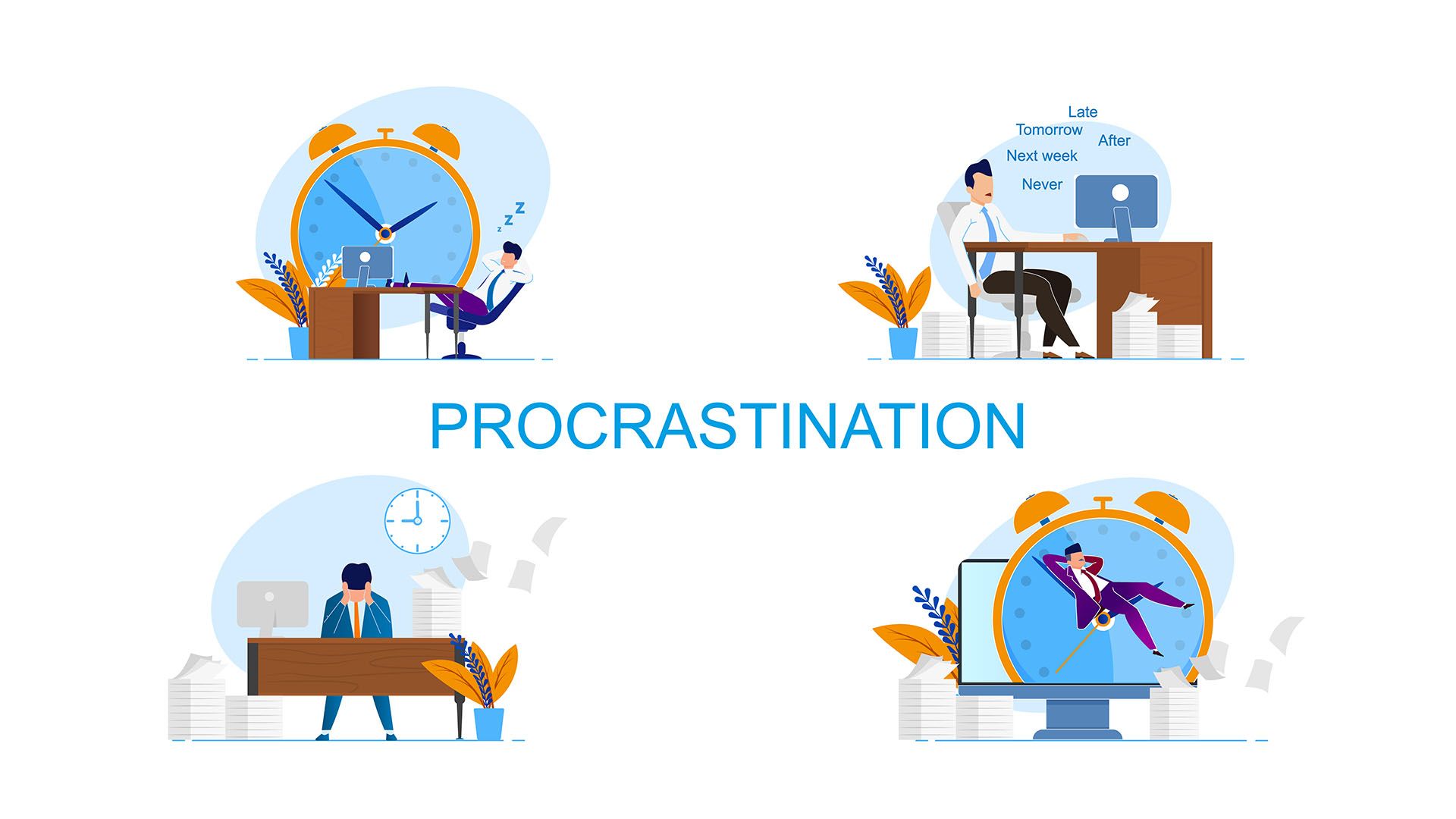The Psychology of Procrastination: Understanding and Overcoming Delay
Procrastination often reigns supreme in the eternal struggle between doing what we need to do and doing what we want to do. We've all experienced that irresistible urge to put off tasks until later, to indulge in distractions rather than facing the work at hand. But why do we procrastinate? What's going on in our minds when we succumb to the allure of delay?
Welcome to the fascinating world of the psychology of procrastination, where understanding the roots of our procrastinating tendencies can illuminate the path to overcoming them.
Defining the Demon: What is Procrastination?
Let's start with the basics. Procrastination is more than just laziness or poor time management. At its core, procrastination involves voluntarily delaying or postponing an intended course of action despite knowing that it may lead to negative consequences.
Picture this: You have a looming deadline for a project, yet instead of diving into the task, you find yourself scrolling mindlessly through social media or organizing your sock drawer. Sound familiar?
Procrastination often stems from a complex interplay of psychological factors, such as fear of failure, perfectionism, low self-esteem, and difficulty with impulse control. Understanding these underlying mechanisms is crucial to unravelling the mysteries of procrastination.
The Perfectionist's Paradox
One common misconception about procrastination is that it's primarily a product of laziness. However, research suggests that perfectionism plays a significant role in fueling procrastination tendencies.
Consider the perfectionist who is paralyzed by the fear of not meeting sky-high standards. Rather than risk falling short of perfection, they delay starting the task altogether, preferring the illusion of productivity through endless planning and preparation. The irony is that procrastination often leads to subpar outcomes, as tasks are rushed or completed haphazardly at the last minute. Perfectionism, far from ensuring excellence, becomes the very obstacle preventing progress.
The Instant Gratification Trap
In an age of instant gratification, where a world of entertainment and distraction is just a click away, it's no wonder procrastination thrives. Our brains are wired to seek out pleasure and avoid pain, and what could be more pleasurable at the moment than binge-watching your favourite TV series or indulging in a spontaneous shopping spree?
The problem arises when these short-term rewards come at the expense of long-term goals. Every hour spent procrastinating is an hour stolen from our future selves, leading to increased stress, anxiety, and a sense of being perpetually behind schedule.
The Power of Procrastination: A Double-Edged Sword
While procrastination is often vilified as the enemy of productivity, it's worth noting that not all procrastination is created equal. In fact, research suggests that strategic procrastination — deliberately delaying tasks to capitalize on creative insights or prioritize more pressing matters — can sometimes yield positive results.
Consider the writer who puts off drafting a chapter until the night before the deadline, only to experience a burst of inspiration that leads to a breakthrough in their work. Or the entrepreneur who procrastinates on minor tasks to focus their energy on high-impact projects that move the needle forward. The key lies in recognizing when procrastination serves as a valuable tool and when it becomes a destructive habit that undermines our goals.
Overcoming the Procrastination Predicament
So, how can we break free from the grip of procrastination and reclaim control over our time and productivity? The journey to overcoming procrastination begins with self-awareness and a willingness to confront the underlying psychological barriers that fuel our procrastinating tendencies.
Here are a few strategies to get started:
1. Set Clear Goals:
Break down tasks into manageable chunks and set specific, achievable goals to reduce overwhelm and increase motivation.
2. Create a Structured Environment:
Minimize distractions by designating a dedicated workspace and establishing routines that signal to your brain that it's time to focus.
3. Practice Self-Compassion:
Recognize that perfection is an illusion and that mistakes are an inevitable part of the learning process. Be kind to yourself when setbacks occur and focus on progress rather than perfection.
4. Utilize Time Management Techniques:
Experiment with techniques such as the Pomodoro Technique or time-blocking to structure your day and maximize productivity.
5. Cultivate a Growth Mindset:
Embrace challenges as opportunities for growth and view failure as a stepping stone on the path to success. Adopting a growth mindset can help shift your perspective from avoidance to action.
Conclusion: Embrace the Journey
In the quest to understand the psychology of procrastination, one thing becomes clear: procrastination is a multifaceted phenomenon with roots that run deep into the human psyche. Yet, armed with knowledge and self-awareness, we have the power to unravel its mysteries and reclaim control over our time and productivity.
So, the next time you find yourself procrastinating, instead of succumbing to guilt or frustration, pause for a moment of reflection. What underlying fears or insecurities might be driving your behaviour? How can you channel your energy in a more productive direction? By embracing the procrastinator within and embarking on the journey of self-discovery, you can transform procrastination from a foe into a friend — a guiding light that leads you toward greater insight, creativity, and fulfilment.
And remember, the psychology of procrastination is a vast and endlessly fascinating subject, ripe for exploration. So, dive deeper, ask questions, and never stop seeking to understand the intricate workings of the procrastinator's mind. Your journey has only just begun.







Comments
Post a Comment